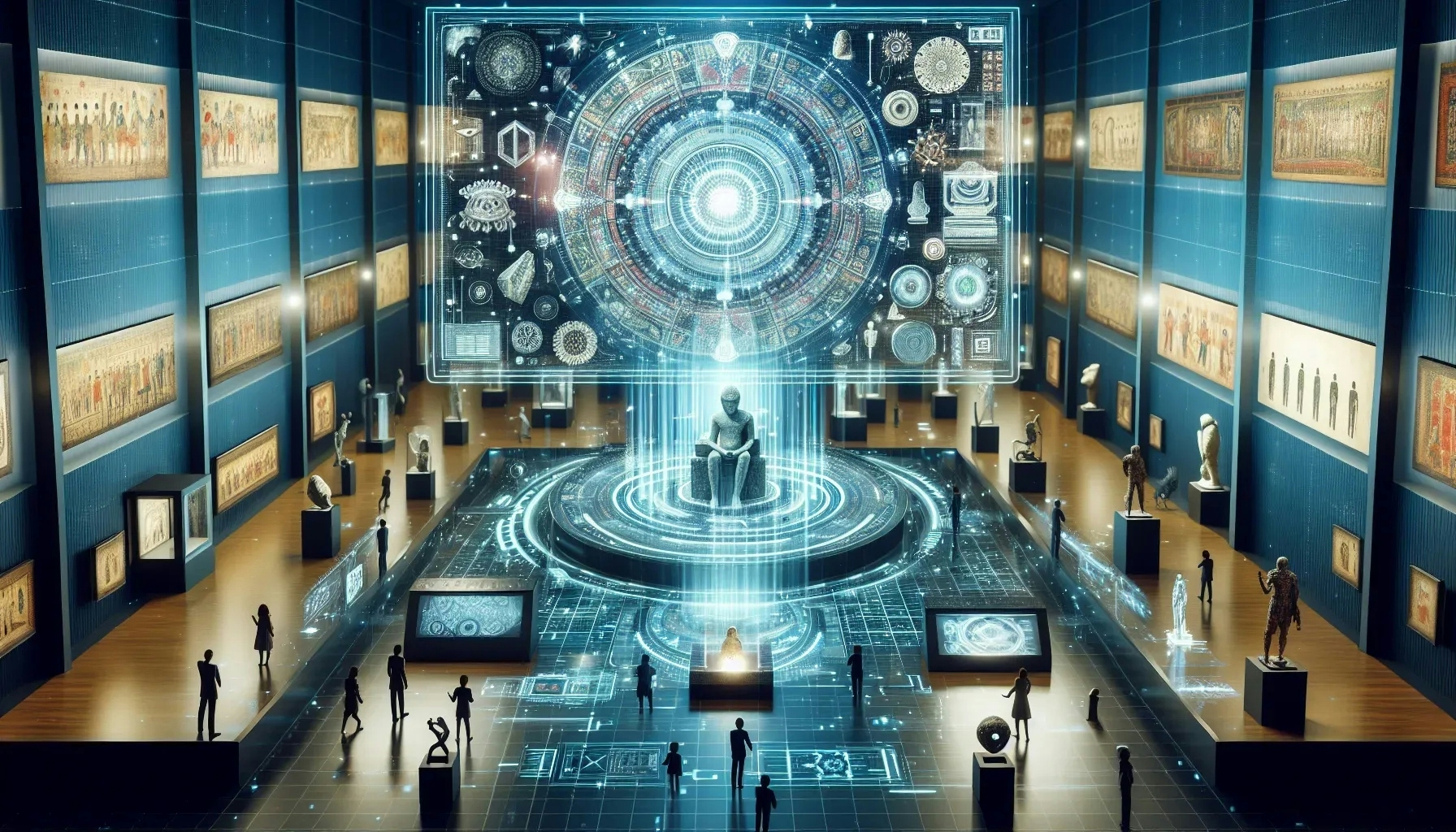In an era where digital transformation is reshaping every facet of our lives, cultural management is not immune. This blog post delves into the profound impact of digital transformation on cultural management. We will explore how digital technologies are redefining the way we manage, preserve, and share culture, and the challenges and opportunities that come with this shift.
The Digital Shift in Cultural Management
The digital revolution has brought about a seismic shift in cultural management. It has transformed the way we access, consume, and interact with cultural content. Museums, galleries, and cultural institutions are leveraging digital technologies to enhance visitor experiences, streamline operations, and broaden their reach.
Digital technologies are enabling cultural institutions to digitize their collections, making them accessible to a global audience. This democratization of culture is breaking down geographical barriers and fostering a more inclusive cultural landscape. Moreover, digital tools are facilitating new ways of engaging with cultural content. Augmented reality (AR) and virtual reality (VR) are providing immersive experiences, bringing cultural artifacts to life in unprecedented ways.
However, the digital shift in cultural management is not without its challenges. Digital preservation is a complex task that requires significant resources and expertise. There are also concerns about the digital divide, as not everyone has equal access to digital technologies. Despite these challenges, the potential of digital transformation in cultural management is immense.
The Role of Digital Technologies in Cultural Management
Digital technologies are playing a pivotal role in transforming cultural management. They are providing cultural institutions with the tools to manage their collections more efficiently, engage with their audiences more effectively, and extend their reach beyond their physical boundaries.
One of the most significant impacts of digital technologies in cultural management is the digitization of cultural artifacts. This process involves converting physical artifacts into digital formats, making them accessible to a wider audience. Digitization not only preserves these artifacts for future generations but also opens up new possibilities for research and education.
Digital technologies are also revolutionizing the way cultural institutions engage with their audiences. Interactive displays, mobile apps, and virtual tours are enhancing the visitor experience, making it more engaging and immersive. Furthermore, social media platforms are providing cultural institutions with a powerful tool to connect with their audiences, share their stories, and promote their events.
The Challenges of Digital Transformation in Cultural Management
While the benefits of digital transformation in cultural management are evident, it also presents several challenges. These include the high cost of digitization, the need for digital preservation, and the risk of widening the digital divide.
Digitizing a cultural collection is a costly and time-consuming process. It requires specialized equipment and expertise, and many cultural institutions, especially smaller ones, may lack the resources to undertake such a project. Moreover, once the artifacts are digitized, they need to be stored and preserved, which involves ongoing costs.
Another challenge is the digital divide. While digital technologies have the potential to democratize access to culture, they can also exacerbate inequalities. Those without access to the internet or digital devices may be left out, creating a gap between the digital haves and have-nots.
The Opportunities of Digital Transformation in Cultural Management
Despite the challenges, digital transformation presents numerous opportunities for cultural management. It offers the potential to democratize access to culture, foster global collaboration, and create new forms of cultural expression.
Digital technologies can make culture more accessible to a global audience. They can break down geographical barriers, allowing anyone with an internet connection to explore a museum's collection, watch a theater performance, or participate in a cultural festival. This democratization of culture can foster a more inclusive and diverse cultural landscape.
Digital transformation can also facilitate global collaboration. Cultural institutions can share their collections with each other, collaborate on research projects, and co-create exhibitions. This can lead to new insights, enrich our understanding of culture, and foster a sense of global community.
The Future of Cultural Management in the Digital Age
The digital transformation of cultural management is an ongoing process, and its full impact is yet to be seen. However, it is clear that digital technologies will continue to play a crucial role in shaping the future of cultural management.
In the future, we can expect to see more advanced digital tools being used in cultural management. Artificial intelligence (AI) could be used to analyze and interpret cultural data, while virtual reality could provide even more immersive cultural experiences. Blockchain technology could also be used to track the provenance of cultural artifacts and prevent forgery.
However, as we embrace these new technologies, it is important to ensure that they are used in a way that respects and preserves the integrity of our cultural heritage. This will require careful management, thoughtful policies, and ongoing dialogue between cultural institutions, technology providers, and the public.
Embracing the Digital Revolution in Cultural Management
Embracing the digital revolution in cultural management is not just about adopting new technologies. It is about rethinking how we manage, preserve, and share our cultural heritage in the digital age.
This involves developing new skills and competencies, such as digital literacy and data management. It also involves addressing the challenges of digital transformation, such as the digital divide and digital preservation. Most importantly, it involves engaging with our audiences in new and innovative ways, using digital technologies to create meaningful and enriching cultural experiences.
As we navigate this digital revolution, it is important to remember that technology is just a tool. The real value lies in how we use it to enhance our understanding, appreciation, and enjoyment of culture. In this way, digital transformation can enrich our cultural landscape, making it more diverse, inclusive, and vibrant.
The Digital Transformation: A New Era for Cultural Management
The impact of digital transformation on cultural management is profound and far-reaching. It is reshaping the way we manage, preserve, and share our cultural heritage, presenting both challenges and opportunities. As we embrace this digital revolution, we must strive to use digital technologies in a way that enhances our cultural landscape, fosters inclusivity, and respects our cultural heritage. The future of cultural management lies in our ability to navigate this digital transformation, harnessing its potential to create a more vibrant and inclusive cultural world.

